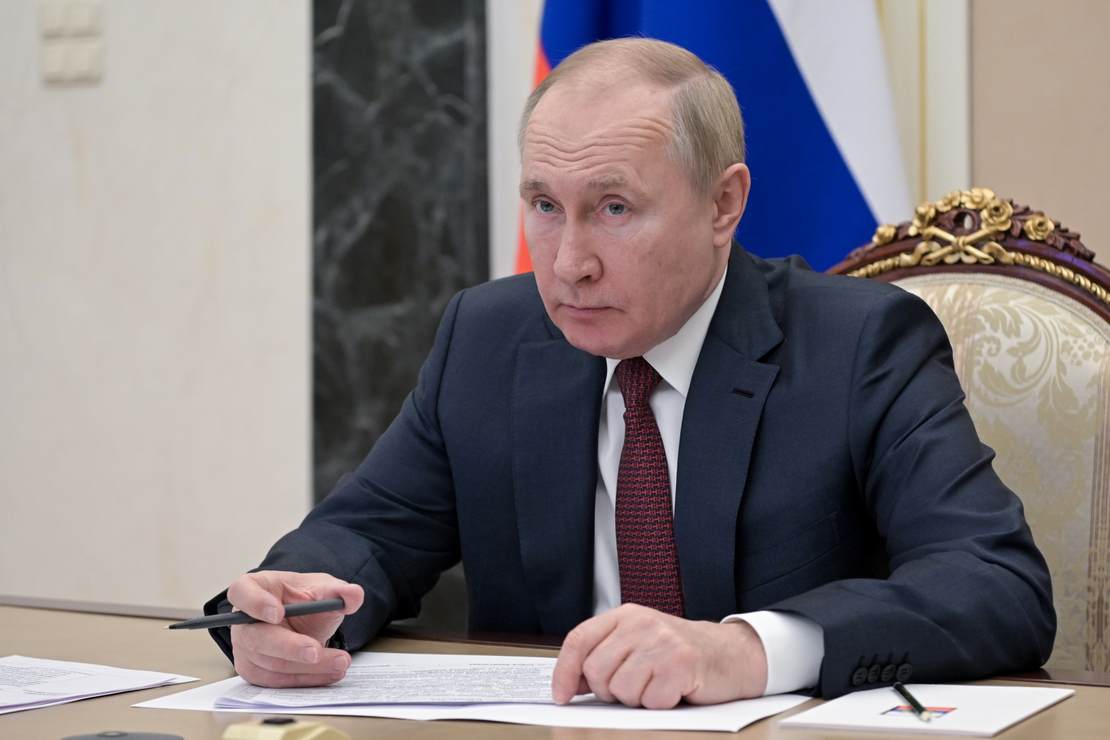
Victory has a thousand fathers but defeat is an orphan.
But according to the Times, among the Russian nomenklatura, the current stalemate increasingly is seen as having one parent.
There’s nothing in this story about a palace coup brewing or current officials revolting against Putin. The sense of discontent is circumstantial, rather: If retired Russian officers are embarrassed about the war and laying blame at his feet, it’s a safe bet that Putin’s current deputies are quietly doing so too.
Igor Girkin, a former colonel in Russia’s F.S.B. intelligence agency and the former “defense minister” of Russian-backed separatists in eastern Ukraine, said in a video interview posted online on Monday that Russia had made a “catastrophically incorrect assessment” of Ukraine’s forces.
“The enemy was underestimated in every aspect,” Mr. Girkin said…
“We can definitively say that nothing is going to plan,” countered Pavel Luzin, a Russian military analyst. “It has been decades since the Soviet and Russian armies have seen such great losses in such a short period of time.”…
The failures in Ukraine have started to create fissures within Russian leadership, according to Andrei Soldatov, an author and expert on Russia’s military and security services. The top Russian intelligence official in charge of overseeing the recruitment of spies and diversionary operations in Ukraine has been put under house arrest along with his deputy, Mr. Soldatov said. Even Russia’s defense minister, Sergei K. Shoigu, who vacations with Mr. Putin and has been spoken of as a potential presidential successor, has suffered a loss of standing, according to Mr. Soldatov’s sources.
One retired Russian general who leads a group of retired and current service members issued a statement in January, before the war, claiming that an invasion would be “pointless,” would alienate Ukraine forever, and conceivably would even threaten Russia’s existence. When the Times caught up to him this week, he said curtly, “I do not disavow what I said.”
For former Russian military leaders, the fiasco in Ukraine must be personal to some degree. After all, it’s not just conscripts who are dying under Ukrainian fire. At least 15 officers with the rank of captain or higher have reportedly been killed in less than a month. Western military experts have puzzled over that, concluding that it would be impossible absent a serious breakdown in Russian capabilities. There must be a failure of operational security — i.e. western penetration of Russian battlefield communications — on top of a failure of organization at the front lines. Top commanders are putting themselves in harm’s way to try to restore order in the ranks and some are paying for it with their lives.
With Russia deprived of some of its most skilled commanders, the military’s morale problem will get worse. If this bit of propaganda posted yesterday by the Ukrainian government is authentic, it’s already bad:
– One column was hit with Grad rockets. Can’t even figure out if it was friendly fire
– Medics only have bandages. Can’t help with frostbite
– No hot stove
– Digging trenched to sleep in
– Commander of 49th CAA told troops on 4th day that war will be over in hours— Dmitri Alperovitch (@DAlperovitch) March 23, 2022
– TV says we are moving forward. But we just drive through without clearing up villages. And now we have to defend from all sides because they are attacking everywhere
– They thought this would be like a parade ride
– Our task was to get to Mykolaiv. And we are sitting here— Dmitri Alperovitch (@DAlperovitch) March 23, 2022
At one point in the call, a Russian soldier claims that logistical problems have made it impossible at times to send the bodies of KIA back home to Russia expeditiously. “They rode with us for five days,” he says of the corpses.
This morale-booster is also circulating. If the west has penetrated Russian communications to the point where they’re capturing audio of an officer as high-ranking as Mizintsev, it’s no wonder so many officers are dying on the field:
READ RELATED: Brian DeLunas Height, Weight, Net Worth, Age, Birthday, Wikipedia, Who, Nationality, Biography
Full translation into English for those interested.
Translation is mine and therefore amateurish and without a full grasp of Russian slang/abuse.
Apologies, my mother raised me right! pic.twitter.com/pfH73Uy19v
— Dmitry Grozoubinski (@DmitryOpines) March 23, 2022
Some of the biggest battlefield news yesterday had nothing to do with casualties but offered further evidence of collapsing Russian morale. How on earth did the Russian military allow this piece of equipment to be captured?
#Ukraine: We managed to identify this bizarre “container”, captured today by the UA forces near #Kyiv.
It is likely to be the command post of one of the most potent Russian EW system – 1RL257 Krasukha-4, used to suppress AWACS radars & radar reconnaissance satellites. pic.twitter.com/1VvKjGoM2p
— 🇺🇦 Ukraine Weapons Tracker (@UAWeapons) March 22, 2022
“I cannot begin to tell you how big a loss this thing is for the Russians,” an astonished Trent Telenko tweeted afterward. According to The Drive, the Krasukha-4 is one of Russia’s most capable electronic warfare systems, something the west is dying to scrutinize. The container above is only one half of a standard system, apparently, but it’s worth its weight in gold to foreign intelligence. It’s a highly sophisticated radar-jammer, disguising Russian positions from enemy surveillance aircraft:
It was developed as part of a larger project to field systems to shield Russian assets on the ground and in the air from the prying eyes of various ground-based and aerial surveillance and imaging radars, along with certain radar-equipped intelligence-gathering satellites…
U.S. military officials regularly cite advanced EW systems, such as those that the Russians, as well as the Chinese, continue to develop and field as especially significant threats to American forces.
Learning more about the Krasukha-4’s capabilities could help, among other things, in the development of countermeasures. The software that runs the system could be as valuable as the hardware, too, and might lead to the discovery of loopholes that could be exploited for cyber warfare purposes.
Russia hadn’t used electronic warfare much in Ukraine so far, The Drive notes, which may have been due to Moscow not wanting to risk having the Krasukha fall into enemy hands. Oops.
I’ll leave you with this clip from the BBC about the battle of Voznesensk, which I wrote about a week ago. It’s a supreme example of the sort of resistance the Russians should have anticipated in their war planning but plainly didn’t.
Remarkable @BBCNews report: farmers in Vosnesensk ambushed 🇷🇺 forces as they approached the small community, halting their advance by blowing up the bridge, destroying all 🇷🇺 tanks vehicles w/ help from 🇬🇧 NLAW anti-tank weapons, inflicting heavy 🇷🇺 losses & full retreat#Ukraine pic.twitter.com/1Pu7HewKaG
— KT CounterIntelligence (@KremlinTrolls) March 22, 2022
Source:






